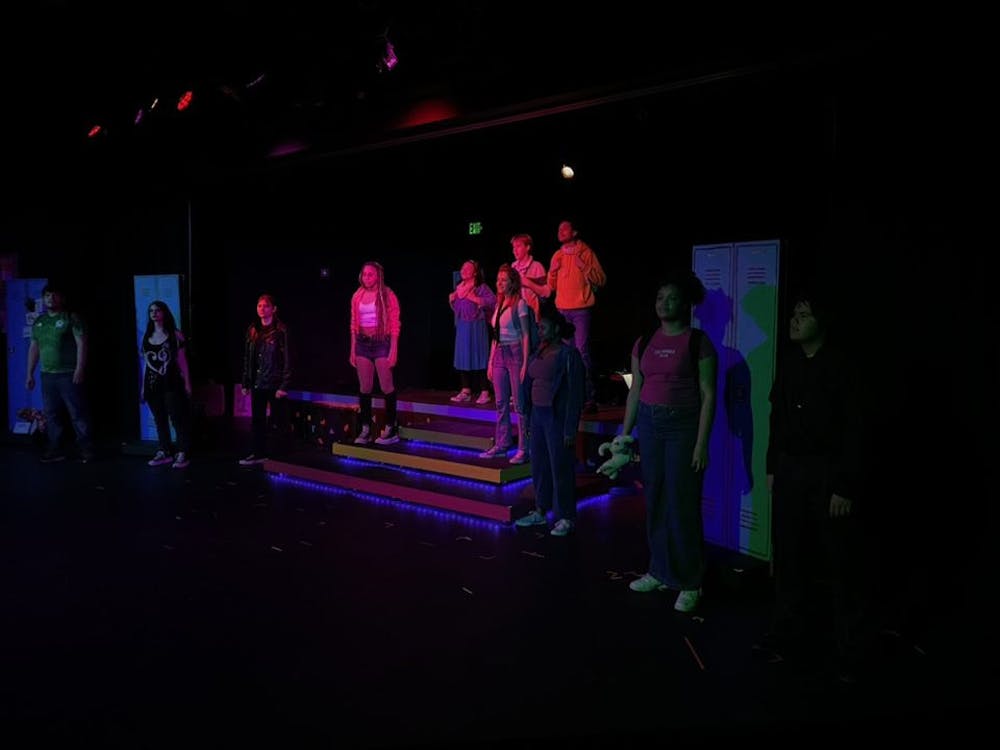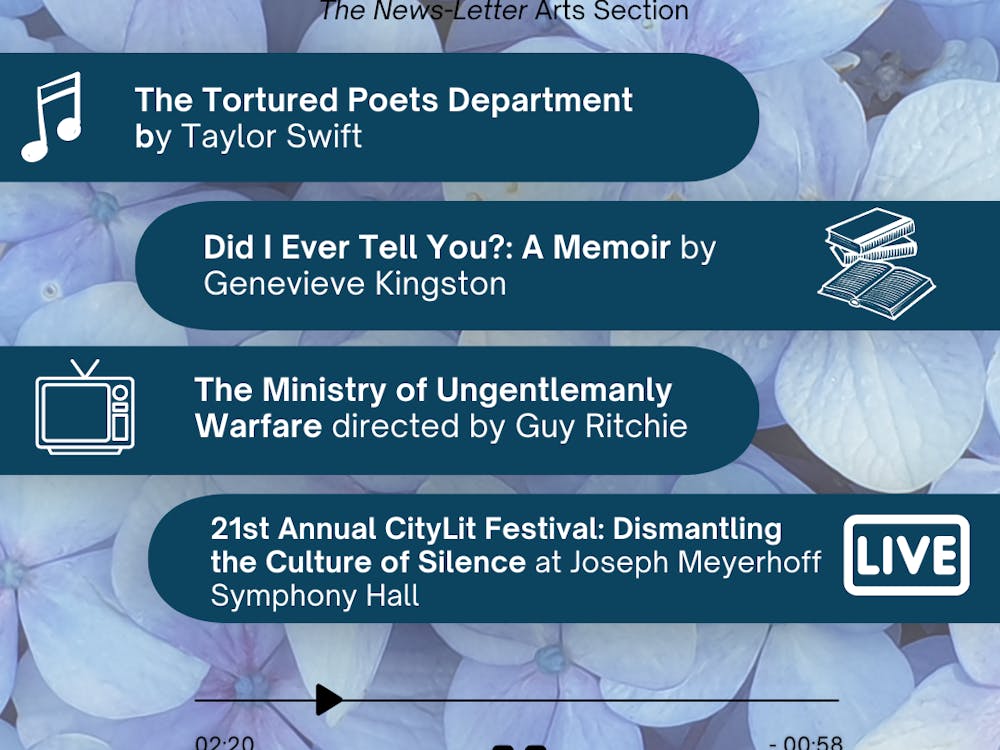My friend, who is not only a self-described legend but perhaps the Freud of our time, spent late Monday evening proselytizing about his new classification of emotions. Although psychologist Paul Ekman, after seminal cross-cultural research, identified anger, disgust, fear, happiness, sadness and surprise as the six basic human emotions, my friend argued that there are “only two: anger and content.”
However, the Baltimore Student Writers’ Showcase, a co-production of Writers in Baltimore Schools (WBS) and the Writing Seminars department at Hopkins, just hours before demonstrated how narrow my friend’s perspective was.
Students at Hopkins and at public high schools in Baltimore City from WBS read their short stories, poetry and other work, rendering their diverse sentiments beautifully. These students, as the Facebook page for the event detailed, collaborated “this semester to explore how disparate life experiences can inspire and inform our fiction” in Senior Lecturer Katharine Noel’s Community-Based Learning course Fiction and Social Engagement.
According to the WBS website, the nonprofit organization “empowers the voices of Baltimore City students through in-school, after-school, and summer programming that builds skills in literacy and communication while creating a community of support for young writers.”
These writing groups, led by educators at colleges in the Baltimore area, currently operate in four Baltimore County Public Schools (BCPS) and one District of Columbia Public Schools (DCPS) middle school.
The students from WBS who presented their work at the event in Bird in Hand were participants in one of the organization’s several alumni programs.
Rachael Clifford, a Master of Fine Arts (MFA) student in the Writing Seminars department who serves as a teaching assistant for Fiction and Social Engagement, and Christian Pearson from WBS served as the emcees for the showcase.
As he introduced the event, Pearson valuably identified a unique aspect of fiction that allows the form to be so potent and for readers to create emotional connections with the writers.
“The best thing about stories... is that you know it’s fictional, but at the same time fiction always has a basis in reality,” he said.
There were nine storytellers from WBS, including Maia Washington, Cin’Shea Williams and Phoebe Gennardo. Fifteen students from Hopkins also participated.
I wouldn’t be doing each author justice if I tried to write about each of their works, though I did enjoy something about each of them. Instead, I will focus on three of the works from the event that struck me the most.
Washington gave a captivating performance of spoken word poetry from memory that resonated deeply with myself. Indeed, she made adroit use of cadence and word play to deliver her insightful and evocative social commentary.
“Being black and gay is like a death wish except I never asked to be either. I never asked to be born directly under the feet of my oppressors, to be born the same color of the dirt everyone walks all over,” she began.
Washington continued to denounce racism, sexism and other forms of oppression. The speaker of the poem feels that she doesn’t fit into “white-girl” feminism or the image of the LGBTQ community, discussing how different members of society deem her ethnicity and sexuality — two components of her existence — incompatible.
The speaker of Williams’ self-described “mental illness poem” also struggled with a part of herself. She discussed the difficulties of daily life and went onto reveal that behind her smile and assurances that she is fine, she hides scars and a broken heart.
“I would tell you I’m an open book, but in reality I’m like a locked door trapped in a cage behind a brick wall,” she read.
In contrast with Washington and Williams’ more somber content, Gennardo, who read from the middle of her short story, recited more humorous writing. Nonetheless, she was still very much able to relay a serious message.
The story takes place the day following the 2016 U.S. presidential election and is narrated by a middle-class social media manager at Kombucha from New York who didn’t vote.
“She’s the type of person who commits to trends with her entire being, whether they are trending or not,” the narrator read, describing her superior.
Gennardo’s story encapsulated the revolutionary role of social media in elections and in society.
Indeed, in part by use of message tailoring, psychological profiling, sentiment manipulation and other micromarketing tools, Trump’s campaign was able to swing the election. And on a lesser technological level, we “ironically” (according to our pseudo-intelligent generation) play into the same attention-grabbing techniques that secured Trump’s often mourned victory.
Other short stories and poems portrayed an array of thematic topics like moving, adolescence, pregnancy, family problems, loss, triumph and defeat.
Although each work was different, all were united in their ability to partake in community conversation and convey truth. Regardless of the “true” number of emotions, we are all united in being human.






















Please note All comments are eligible for publication in The News-Letter.